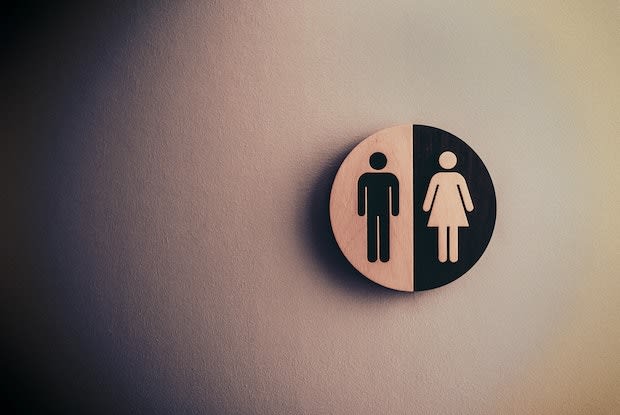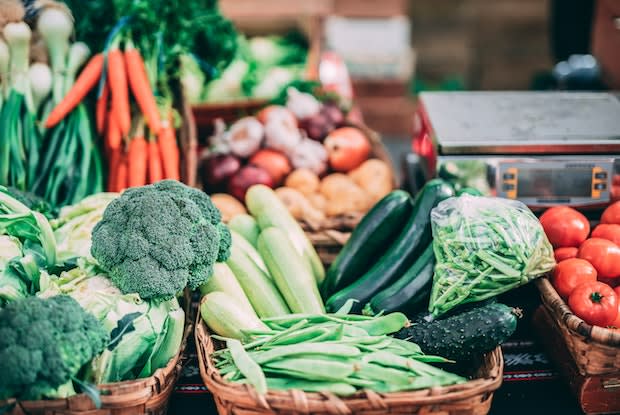Table of Contents
I. What is Irritable Bowel Syndrome?
What is Irritable Bowel Syndrome?
a. Overview
Irritable bowel syndrome (IBS) is a chronic condition that affects the large intestine. IBS is not a single disease but a collection of symptoms including abdominal pain, diarrhea, and constipation. IBS is a common disorder around the world and affects between 25 and 45 million Americans. [1]
The exact cause of irritable bowel syndrome is not known and it can affect people of any age. However, it is twice as likely to affect women than men, and it is more common in people under the age of 50. [1]
b. Symptoms of IBS
Patients with irritable bowel syndrome suffer from abdominal pain. To be diagnosed with IBS, this abdominal pain must occur with at least two of the following symptoms.
- Changes to the frequency of stools
- Changes to the appearance of stools
- The abdominal pain must be partially or completely relieved after a bowel movement.
IBS is typically diagnosed with the Rome IV criteria. If these symptoms have been occurring at least once a week for the past three months and initially started at least six months ago, then doctors may diagnose IBS. [2] As well as displaying these symptoms, patients with IBS may also have abdominal bloating, excess gas, mucus in the stool, or more urgent defecation. Depending on the symptoms of IBS, doctors may prescribe Linzess or Xifaxan to help relieve symptoms.
Get savings updates for Linzess
c. Different Types of IBS
Irritable bowel syndrome can be separated into three different types. All IBS patients have abdominal pain. The three types of IBS are based upon the other symptoms that patients suffer from.
- IBS-C (IBS Constipation): Patients suffer from abdominal pain and constipation.
- IBS-D (IBS Diarrhea): Patients suffer from abdominal pain and diarrhea.
- IBS-M: (IBS Mixed): Patients suffer from abdominal pain and a mix of diarrhea and constipation. Also known as IBS-A (IBS Alternating).
Tips for All IBS Patients
The foods and drinks that trigger IBS attacks are based upon the type of IBS and the symptoms displayed. Keep reading to learn which foods IBS patients should avoid and which they should include in their diet. However, just because a patient has IBS-C or IBS-D does not mean that these foods will automatically trigger an IBS attack or improve IBS symptoms.
Anyone that has irritable bowel syndrome should keep a symptom diary. This should include the severity of symptoms and the foods and drinks that were consumed. This can help a doctor and patient work out which foods may trigger symptoms.
If it looks as if IBS may be caused by certain food, then try to eliminate it from your diet. A period of three months should be sufficient. If after this time, there is no improvement, then you can add it back to your diet. If there are multiple foods that may be a problem, try eliminating one at a time. Common foods that cause problems for all IBS patients include nuts, chocolate, insoluble fiber, and caffeine. [3]
IBS-C Diet Plans
IBS-C patients who have regular constipation should make sure to drink plenty of plain water every day. Water and other unsweetened drinks help to make stools softer, which can make it easier to pass. [4]
Patients may also find it beneficial to eat smaller meals frequently throughout the day rather than a traditional breakfast, lunch, and dinner. It is important to eat breakfast as this gets the colon active early in the morning.
For those with constipation, it is very important to boost fiber intake as fiber makes it easier to pass stools. High-fiber foods include whole-grain cereal, whole grain bread, beans, and fruit. The daily recommendation for fiber is 38grams for men and 25 grams for women. For those who are not used to eating a high-fiber diet, it is better to increase fiber intake gradually. [4] Other foods that may help with constipation include flaxseed, prunes, broccoli, apples, pears, and grapes. [5]
As mentioned, eating enough fiber is a key way to improve constipation. Therefore, refined bread and cereals should be avoided and replaced by whole grain substitutes. High-fat foods can also worsen the symptoms of irritable bowel syndrome. Eating fatty foods can also cause other health issues, including obesity, so they are always best to eat in moderation. Grilling or baking the same foods can make them healthier and easier to digest. People with IBS-C need to stay well hydrated. However, some liquids should be avoided. Alcohol, coffee, and carbonated drinks can worsen IBS-C symptoms by dehydrating the body. [6] Constipation and diarrhea are very different symptoms. Therefore, some of the key foods to eat for those with IBS-C should be avoided for IBS-D patients and vice versa. However, this is not always the case. People that have IBS-D should avoid eating very hot and very cold foods together as part of the same meal. Another strategy that may help is to avoid drinking fluids with meals. Drink water an hour before or after a meal but not alongside it. [7] Like patients with IBS-C, eating smaller portion sizes may help to improve symptoms. Patients with IBS-D should try and lower their fiber intake. However, rather than completely removing the fiber, it may be more beneficial to still eat soluble fiber. Sources of soluble fiber include whole grains, nuts, and berries. Soluble fiber helps to strengthen stools, which can help to reduce diarrhea. Dairy can also increase diarrhea. Many people with IBS are also lactose intolerant. Eliminating dairy from the diet or replacing it with non-dairy alternatives may help to improve diarrhea symptoms. [8] Similarly to IBS-C, fatty and fried foods may worsen symptoms. If these foods are consumed, then it is vital only to have them in moderation. Fatty foods such as French fries, burgers, and other fast foods may be particularly difficult to digest. Caffeine is another thing that should be avoided. Caffeine is most commonly found in coffee, sodas, and energy drinks and can have a stimulating effect on the intestines causing diarrhea. [8] If excess gas is another symptom of IBS, then it may be beneficial to avoid foods such as sprouts, cabbage, broccoli, and beans. The content in this article is intended for informational purposes only. This website does not provide medical advice. In all circumstances, you should always seek the advice of your physician and/or other qualified health professionals(s) for drug, medical condition, or treatment advice. The content provided on this website is not a substitute for professional medical advice, diagnosis or treatment.
a. Foods to Avoid
IBS-D Diet Plans

a. Foods to Avoid
